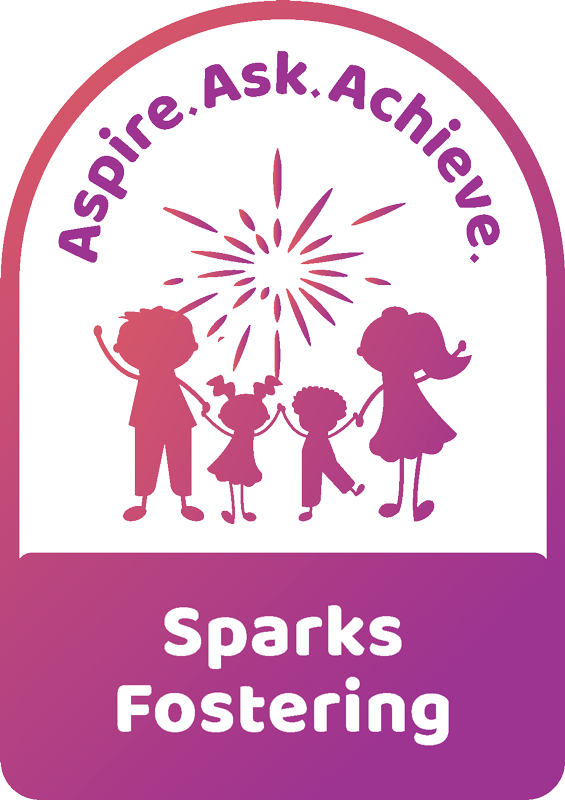Preventing Radicalisation and Extremism
Online Prevent training
All Sparks Fostering staff and foster carers are expected to complete the online Prevent training within the first year of joining Sparks Fostering and then subsequently every 3 years. Click here to access the training.

Introduction to Prevent
The aim of the Prevent strategy is to reduce the threat to the UK from terrorism by stopping people becoming terrorists or supporting terrorism.
The Prevent strategy has three specific strategic objectives:
- Respond to the ideological challenge of terrorism and the threat we face from those who promote it.
- Prevent people from being drawn into terrorism and ensure that they are given appropriate advice and support.
- Work with sectors and institutions where there are risks of radicalisation that we need to address.
Terrorist groups often draw on extremist ideology, developed by extremist organisations. Some people who join terrorist groups have previously been members of extremist organisations and have been radicalised by them.
Radicalisation is the process through which a person comes to support or be involved in extremist ideologies. It can result in a person becoming drawn into terrorism and is in itself a form of harm.
The Government has defined extremism in the Prevent strategy as: “vocal or active opposition to fundamental British values, including democracy, the rule of law, individual liberty and mutual respect and tolerance of different faiths and beliefs. We also include in our definition of extremism calls for the death of members of our armed forces”.
Islamist extremists regard Western intervention in Muslim-majority countries as a ‘war with Islam’, creating a narrative of ‘them’ and ‘us’. Their ideology includes the uncompromising belief that people cannot be both Muslim and British, and that Muslims living here should not participate in our democracy. Islamist extremists specifically attack the principles of civic participation and social cohesion. These extremists purport to identify grievances to which terrorist organisations then claim to have a solution.
The white supremacist ideology of extreme right-wing groups has also provided both the inspiration and justification for people who have committed extreme right-wing terrorist acts.
Vulnerability to radicalisation
Anyone can be radicalised but there are some factors which may make a young person more vulnerable. These include:
- Being easily influenced or impressionable.
- Having low self-esteem or being isolated.
- Feeling that rejection, discrimination or injustice is taking place in society.
- Experiencing community tension among different groups.
- Being disrespectful or angry towards family and peers.
- Having a strong need for acceptance or belonging.
- Experiencing grief such as loss of a loved one.
These factors will not always lead to radicalisation, but they do increase a young person’s vulnerability to radicalisation.
How does radicalisation happen?
The process of radicalisation may involve:
- Being groomed online or in person.
- Exploitation, including sexual exploitation.
- Psychological manipulation.
- Exposure to violent material and other inappropriate information.
- The risk of physical harm or death through extremist acts.
It happens gradually so children and young people who are affected may not realise what it is that they are being drawn into.
Signs of radicalisation
If a child or young person is being radicalised their day-to-day behaviour may become increasingly centred around an extremist ideology, group or cause. For example, they may:
- Spend increasing amounts of time talking to people with extreme views (this includes online and offline communication).
- Change their style of dress or personal appearance.
- Lose interest in friends and activities that are not associated with the extremist ideology, group or cause.
- Have material or symbols associated with an extreme cause.
- Try to recruit others to join the cause.

Duty to report
The duty to report radicalisation and extremism, as outlined within the Prevent agenda, can create ethical dilemmas for the social workers (and other professionals) who work within it, and many are concerned about best practice and how to approach such a sensitive and often challenging role. These concerns mainly centre around the risk of targeting Muslim communities which in turn can perpetuate alienation and harm to community relations. There are also concerns about the issue of ‘pre-crime’ and whether social workers can run the risk of criminalising young people before they have even committed a crime.
However, social workers (and other members of the team around the child) have a statutory duty to work within the agenda and report and manage concerns if someone is at risk of radicalisation.
If foster carers, social workers, or any other professionals become aware of indicators of radicalisation of the children in our care, they must notify the child’s social worker and the supervising social worker urgently. The supervising social worker is expected to notify their line manager and the Sparks Fostering safeguarding lead.
Sparks Fostering staff and foster carers work with the child’s social worker to determine appropriate next steps (including whether a referral to Channel is required).
Channel
A key part of the Prevent strategy is “Channel”. Police work with public bodies, including local councils, social workers, NHS staff, schools and the justice system to identify those at risk of being drawn into terrorism, assess what the risk might be and then develop tailored support for those referred to them. This could range from mentoring to things like anger management or drug and alcohol programmes.
Not everyone referred to Channel will be deemed suitable for the programme—there’s a filtering process in case the person isn’t really at risk of radicalisation, and to weed out referrals that are wrong or malicious.
Channel is voluntary and people who are referred to Prevent must give consent (via a parent or guardian if they are underage) before they can be given support.
additional resources (optional)
If your teen is at risk of extremism or radicalisation (information from ‘Family Lives’)
Action Counters Terrorism: A website which gives advice about spotting and acting on early signs of terrorism.







